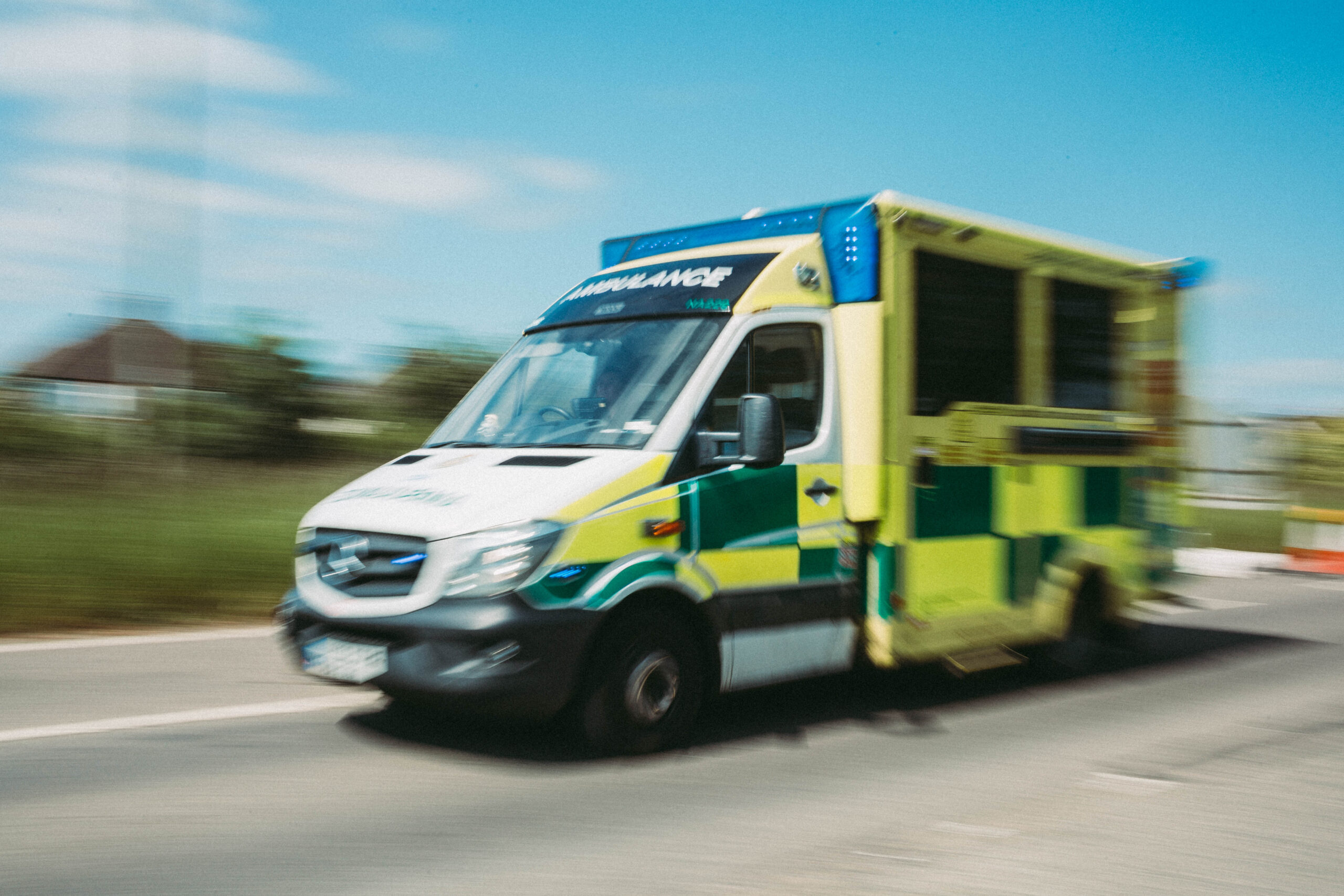Project summary
The Spinal Immobilisation Study is a randomise controlled trial assessing if triple immobilisation is comparable to movement minimisation in patient outcome for spinal injury following blunt trauma. This is measured through various data points during and after the patient’s hospital stay.
Movement minimisation (Pictured) consists of head blocks or blankets attached to the bed (not the patient) to support the patient in reducing their movement, the patient can be sat up to 30° to aid comfort and reduction in complications of lying flat.
Triple immobilisation is historically the standard practice for ambulance teams, consisting of applying a cervical collar to limit neck mobility, lying the patient on a hard board and attaching head blocks either side of the patient with tape to secure them down.
Patient Group
The spinal immobilisation study is randomising any patient over the age of 11 who has suffered potential spinal injury following blunt trauma. Below are the inclusion and exclusion criteria that clinicians work to.
Inclusion Criteria:
- Patients requiring spinal immobilisation due to blunt trauma
- Age 12+
- Any GCS
- Single patient requiring treatment
- Transfer planned to a participating hospital
Exclusion Criteria:
- Patients not requiring spinal immobilisation
- Patients for whom triple immobilisation is contraindicated (e.g. pre-existing spinal deformity)
Participating areas in SCAS
Any catchment area for the receiving hospitals:
- Basingstoke and North Hampshire Hospitals
- University Hospital Southampton
- Oxford John Radcliffe Hospital
- Milton Keynes University Hospital
- Salisbury District Hospital
- Royal Berkshire Hospital
- Queen Alexandra Hospital
How are patients selected for this project?
Eligible patients attended by a trial trained ambulance staff will be considered for the SIS study. Any clinical grade within SCAS can enrol a patient into the Spinal Immobilisation Study (Associate Ambulance Practitioner, Doctor, Nurse, Paramedic, Technician).
Not all clinicians are currently trained in this study.
Closing date
15 December 2026

